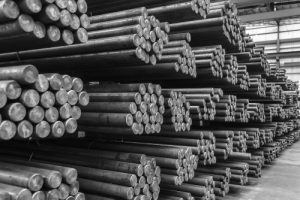
An extensive tariffs plan for steel and aluminum imports proposed by President Donald Trump could put the brakes on a booming auto parts manufacturing employment sector in his home state of Tennessee, U.S. Sen. Lamar Alexander (R-TN) said this week on Capitol Hill.
Trump announced his plan to institute tariffs of 25 percent for steel imports and 10 percent for aluminum imports on March 1 as a solution for balancing competition for American companies.
If such plans come to fruition, Sen. Alexander said some new jobs might be salvaged at steel and aluminum production plants, but comparatively there will be many more jobs abolished at auto plants that use those materials.
“This is especially bad news for Tennesseans because one-third of our state’s manufacturing jobs are auto jobs with more than 900 plants in 87 of our 95 counties,” Sen. Alexander said on March 5 during Senate floor comments. “It will now be cheaper for some Tennessee auto parts suppliers to move outside the United States, buy steel and aluminum there and then ship finished parts back to our country.”
And the proposed tariffs would hurt more than U.S. auto manufacturers, Alexander said. For instance, when Stockholm-based home appliance manufacturing giant Electrolux heard about Trump’s proposed import tariffs, the company put on hold its $250 million planned expansion project in Springfield, Tenn., reportedly until the president signs an order and clarifies final details, a company spokeswoman said in a statement.
The spokeswoman added that all of the steel Electrolux uses in its U.S. manufacturing plants comes from American steel mills. The company is concerned that the proposed tariffs could jack up the price of steel in the U.S. market and damage the overall competitiveness of its U.S. operations. That would create more bad news for Tennessee, where Electrolux also has a plant in Memphis and employs more than 1,000 residents statewide, according to Alexander’s office.
“We should learn our lesson from 2002 when President [George W.] Bush imposed similar tariffs and they backfired,” Alexander said, referring to “the disastrous effect” of the tariffs the former president imposed of as high as 30 percent on global steel imports. The temporary tariffs were slated to remain in effect until 2005, but the resulting job losses, material shortages, production delays, increased costs, and retaliatory push-back tariffs from the European Union on oranges forced Bush to reverse the tariffs in 2003.
“It would be better if President Trump terminates the idea of these new tariffs even before they are implemented,” Alexander said.



